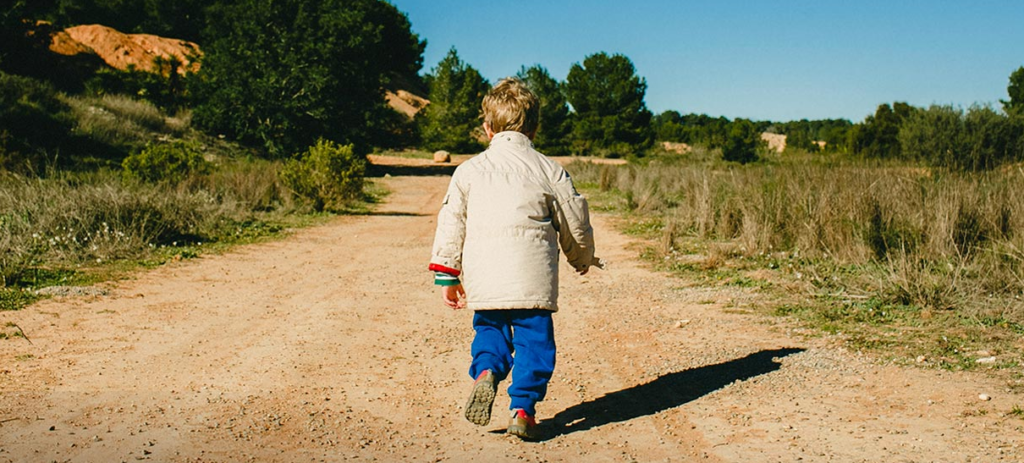“Problem solving is a kind of curse for entrepreneurs – there is something in your environment that you cannot accept and you need to change it.”
On his latest project, Iker Marcaide plans to solve bigger problems and provide a solution more comprehensive than ever before. Barrio La Pinada is an ecotown in Spain that aims to pave the way towards social inclusion, environmental sustainability and societal prosperity in Valencia. But the project’s recognition is not limited to regional nor national borders – the ecotown has been selected by Climate Kic Europe for its Smart Sustainable District flagship program and Fighting Against Climate Change.
From technology, to social venture builders, to education, and now smart cities – Iker Marcaide has a history of solving problems he has experienced first hand. Now, the founder of 2010’s best startup in the world – Peer Transfer (now known as FlyWire) – has acquired 25 hectares on the outskirts of Valencia to develop an ecotown by 2021.
Sitting down one sunny Friday morning with a bocadillo and freshly squeezed Valencian orange juice, I intended to discover the links between Iker Marcaide’s personal and professional development, how these experiences have created such successful enterprises, and which one inspired him to develop Barrio La Pinada.
Iker Marcaide
“Experiences mould our journey too – you don’t just learn in a classroom, you learn outside doing things. Such experiences help you discover yourself, what you like and don’t like.”
Iker grew up getting lost in the mountains of Zubia (Andalucía), inventing games and imaginative worlds in which him and his friends would play. He later spent his first years of work as a lifesaver, swimming teacher, radio deejay and went on to organise latin themed parties with a Chilean Deejay in Germany – all of which are experiences he thinks of fondly.
Balance seems to be an obvious theme throughout his development – the variety of playful experience in his youth was accompanied by a family culture of academic excellence. When choosing a degree for university he opted for Industrial Engineering as he regarded the generic business degree as being ‘soft’ and wanted a more technical degree while maintaining a focus in organisations.
Upon graduation, he went to work at Boston Consulting Group (BCG) in Madrid and later in London. At BCG the projects were short and intense, but he was left wanting to go deeper. Iker was very interested in Lean Manufacturing – a model for waste minimisation – and the ‘how?’. How, by doing things well, can you avoid inefficiencies and waste. So he went and did two masters at MIT in Boston, United States – a Master’s in Business Administration and Master’s in Operations Management.
Approach to Entrepreneurship
“Some people have the technology or bright ideas to resolve a specific problem, I am more somebody who finds a rock on my journey and tries to turn it.”
Iker’s life and career seem intertwined, with each step being clearly linked to its origin and the one it precedes. For each project founded, Iker has lived the problem that it solves. PeerTransfer was founded to make international education payments easy while he was studying at MIT in Boston; ZubiLabs (named after his childhood town of Zubia, also meaning ‘bridge’ in Basque) is a social venture builder that supports his projects and other social enterprises; and Imagine Montessori School was created with friends when they were unsatisfied with school options for their children in Valencia.

“Living the problem helps you understand, but you need to ensure that there are enough people also experiencing the problem” he chuckled. This he considers a very important consideration when analysing a market – taking a step back and realising that there different individuals. If not, the solution will be tailored personally and one needs to ensure there is a business behind it.
Optimisation – of a business or its solution – is another theme central to startups. Entrepreneurs often seek to provide ‘the best solution’ or be ‘the best company’ from the beginning – Iker suggested that entrepreneurs should reconsider their approach to startup development.
“You aren’t necessarily optimising your decisions as you take them. Sometimes it’s even emotional – it makes sense to solve this problem, it’s economically viable and there is a business model.” Holding up his drink he simplified “Take this orange juice for example – it is sufficiently tasty to drink”.
The solution is only a small part of it. Then there comes teams, processes, money… “Perfection is a journey,” he explained:
“When I finished my degree, I always thought of opportunities to optimise. But often it’s not optimisation but survival that’s most important – and this is crucial in a startup. You need to choose your battles. You cannot optimise everything at once. Otherwise you end up juggling balls, waiting to see which one will fall. There needs to be an equilibrium amongst things and be aware that at certain stages of development, certain necessities are more important than others.”
La Pinada Origins

His approach is now apparent in La Pinada – an ecotown that has grown out of the Imagine Montessori School. After founding the school, Iker and his co-founders started to look for a place to develop 18 years of education for their children and they thought – ‘What if we could create an environment for the families of the school, aligned with the values of the school – sustainability, innovation, and social commitment?’
The project’s ambition is to create a spectacular place to live, aligned with these values, so that the living context fosters an education that is down-to-earth, considers socio-economic diversity, and encourages involvement with the environment. Education itself will engage with the neighbourhood and the neighborhood itself will be used as an area of experimentation for the students. Children could speak with neighbours, discover their necessities and then see what they can do with respect to these. A new sort of holistic education geared towards action… or simply – a spectacular playground.
The project seems to closely mirror the value Iker places on a life outdoors and learning through experience, a reference to his imaginative and unrestricted childhood spent in the mountains – something he considers fundamental to a child, particularly considering the amount of time children now spend indoors.
La Pinada’s Impact
La Pinada, meaning ‘The Pine’, will have 5000 pine trees. The neighborhood will be located very close to Valencia, but its potential impacts reach beyond the city’s boundaries.
The ecotown’s impact model is currently being conceived but recent developments provide some indication as to its direction. Iker considers La Pinada’s selection by Climate Kic Europe as the neighborhood against climate change as one of many steps in the journey of the ecotown. 4000 people will live in the La Pinada, but it intends to reach many more thousands of people – a smart city in Spain.

The project is maximising impact through co-creation. The team is working with professionals and users to define and satisfy needs, and develop the identity of the neighborhood. Corporates have also been incorporated in the solution process. The result is a project that considers many perspectives, angles and dimensions and is very ambitious.
“It’s a bit like an onion that you start peeling and decide how deep you go – social innovation, water and energy, sharing economy, social cohesion etc. In this sense it is a nice project – it touches so many dimensions and forms of impact”
The Future of ‘Impact Ventures’
The consequences of the recent global financial crisis, the change from notions of the ‘nation-state’ to a more inclusive global identity, and the digital empowerment of people have had several consequences on society, economics and politics. Namely, a lack of faith in politics, contempt for monopolisation and economic instability.
Can we assume we are experiencing a significant change in societal values to ones that embraces sustainability and inclusion? What role does business play in this change?
“The future is in businesses that incorporate values that are more than just economic and create much more sustainable models.”
Iker suggested this may be due to a gradually increasing non-conformist society, and people being more active in changing their environment – “People are more empowered. When you are unhappy with a business, you can tweet and make yourself heard. Before, this was not possible and now it is changing the relationships between organisations and people.”
As a result, people are more and more willing to work with a company that is aligned with their values, and as consumers, people are more likely to reach out to such companies.
“In the end, forces are people – with first and last names. So the more that people know that businesses can gain a lot more than just money, the more they get involved.”
Iker mentioned this also translates B2B. Talking with potential investors, Iker has noticed a wider interest in individuals and groups keen to invest in projects that, in addition to financial profits, aim to deliver social and environmental benefits. Consequently, businesses are starting to develop models that incorporate and encourage social and environmental benefits.
“How can I influence my environment/society through my expenses? If I contract you instead of another, and you share A, B and C with me, I am incentivising the market to behave accordingly. So, in the case of La Pinada, while we also are trying to create an ideal environment for the inhabitants we are also developing a business fabric that is more responsible”.
While Barrio La Pinada is moulding a model of social inclusion, sustainability and prosperity, it is also creating a model for the future.

